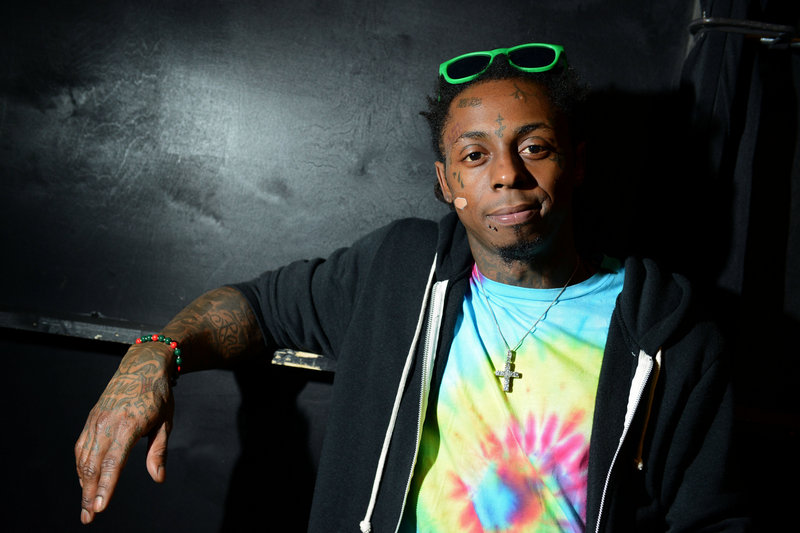NEW YORK – PepsiCo is bowing to public pressure for the second time in a week and cutting ties to Lil Wayne over the rapper’s crude reference to civil rights martyr Emmett Till in a song.
Lil Wayne, one of the biggest stars in pop music, had a deal to promote the company’s Mountain Dew soda.
Earlier this week, PepsiCo also pulled an online ad for the neon-colored soda that was criticized for portraying racial stereotypes and making light of violence toward women. That ad was developed by rapper Tyler, the Creator.
PepsiCo said in a statement late Friday that Wayne’s “offensive reference to a revered civil rights icon does not reflect the values of our brand.” It declined to provide any further comment.
A publicist for Lil Wayne, Sarah Cunningham, said the split was due to “creative differences” and that it was an amicable parting.
“That’s about all I can tell you at this time,” she said.
Rev. Al Sharpton, who had been working with the Till family to arrange a meeting with Lil Wayne and PepsiCo officials, said he is still working to arrange a meeting between the family and company officials.
Sharpton said this was a “teaching moment for corporate America, Wayne and the family of Emmett Till,” according to an email from his publicist sent to The Associated Press.
The controversy erupted after Wayne made the reference to Till on Future’s song “Karate Chop” earlier this year. He refers to beating someone during a sexual act and says he wants to do as much damage as was done to Till.
The black teen from Chicago was in Mississippi visiting family in 1955 when he was killed, allegedly for whistling at a white woman. He was beaten, had his eyes gouged out and was shot in the head before his assailants tied a cotton gin fan to his body with barbed wire and tossed it into a river.
Two white men, including the woman’s husband, were acquitted by an all-white jury.
Till’s body was recovered and returned to Chicago where his mother, Mamie Till, insisted on having an open casket at his funeral. The pictures of his battered body helped push civil rights into the cultural conversation.
Wayne had sent the Till family a letter offering empathy and saying that he would not reference Till or the family in his music, particularly in an inappropriate manner.
The Till family had said the letter fell short of an apology and called for a meeting with Wayne and PepsiCo representatives. The family was made aware of PepsiCo’s decision Friday but did not immediately have a statement.
Music and media industry executive Paul Porter, who comments on music issues on his website RapRehab.com, said he thought PepsiCo’s decision was an effort by the company “to do the right thing now.”
Porter, who had complained publicly and to PepsiCo about Lil Wayne and the Mountain Dew video, said the company is “doing a whole evaluation of the process” involving its commercials and musicians. His comments were based on his conversations with the company.
“I commend them for making this strong judgment. Lil Wayne’s apology was not an apology,” he said.
Earlier this month, Rick Ross also lost his deal with Reebok after he rapped about raping a woman who had been drugged. As for the Mountain Dew ad by Tyler, the Creator, PepsiCo said it pulled the spot immediately after learning people found it offensive.
The ad portrayed a battered white woman being urged to identify her attacker from a lineup of black men and a talking goat. Tyler, the Creator has noted that the men in the lineup were played by his friends and members of Odd Future, a Los Angeles-based rap collective.
Send questions/comments to the editors.



Success. Please wait for the page to reload. If the page does not reload within 5 seconds, please refresh the page.
Enter your email and password to access comments.
Hi, to comment on stories you must . This profile is in addition to your subscription and website login.
Already have a commenting profile? .
Invalid username/password.
Please check your email to confirm and complete your registration.
Only subscribers are eligible to post comments. Please subscribe or login first for digital access. Here’s why.
Use the form below to reset your password. When you've submitted your account email, we will send an email with a reset code.